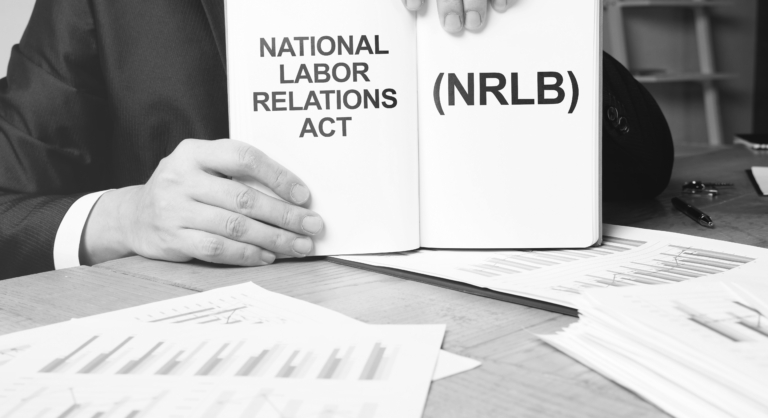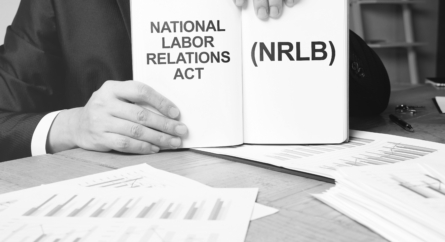Client Alert: NLRB Shakeup – General Counsel Scraps Dozens of Biden-Era Policy Memoranda
On February 14, 2025, the Acting General Counsel of the National Labor Relations Board (“NLRB” or the “Board”) issued General Counsel Memorandum 25-05 (“GC 25-05”), which rescinded dozens of previously issued memoranda and reinstated others. This Client Alert highlights major changes facing employers as a result of this memorandum.
Narrows the Scope of Protected Activity
On March 31, 2021, former Acting General Counsel issued Memorandum GC 21-03, which broadly interpreted the scope of protected concerted activities under the National Labor Relations Act (“NLRA”) and signaled an intent to robustly enforce the NLRA to protect employees’ rights. As a reminder, under the NLRA, employees of both unionized and non-unionized workplaces have the right to, among other things, engage in concerted activities for the purpose of mutual aid or protection.
Memorandum GC 21-03 stretched the conventional boundaries in defining the scope of mutual aid or protection. For example, the memo stated that conduct can be for “mutual aid or protection” even when the employee does not connect their activity to workplace concerns. Overall, the memorandum signaled that the NLRB would take an expansive view of what constitutes protected activity.
GC 25-05 rescinded GC 21-03.
Through the rescission of GC 21-03, the NLRB narrows the scope of protected concerted activity, and makes more room for employers to challenge whether an employee’s actions are protected by the NLRA.
Signals More Flexibility in Discrimination Investigations and Discipline
On January 16, 2025, former NLRB General Counsel issued memorandum GC 25-04, which discussed how employers can harmonize their obligations under the NLRA and equal opportunity laws (e.g., Title VII, the Age Discrimination in Employment Act, and the Americans with Disabilities Act). Tension between the two laws can occur, for example, when an employee makes discriminatory statements in conjunction with protected complaints about workplace conditions.
GC 25-04 primarily discussed the legality of workplace civility rules, limitations on confidentiality in the context of workplace investigations, and the permissibility of offensive actions that occur in the context of protected complaints about workplace conditions. Through GC 25-04, the NLRB made plain that there would be enhanced scrutiny of confidentiality obligations placed on employees during workplace investigations and of workplace civility rules beyond the prohibition of harassing or discriminatory conduct (e.g., rules generally requiring “respect” would be deemed problematic). GC 25-04 also limited an employer’s ability to discipline employees who engaged in insults, obscenities, or other vulgar language or mannerisms, potentially including discriminatory conduct, if that conduct occurred in the context of engaging in activity protected under the NLRA.
GC 25-05 rescinded GC 25-04 “pending further guidance.”
The rescission of GC 25-04 makes room for the Acting General Counsel to issue its own guidance on these matters, perhaps in conjunction with the Equal Employment Opportunity Commission. Such guidance, if and when it is issued, likely will give employers more leeway to require confidentiality during investigations, enforce workplace civility rules, and issue discipline for discriminatory comments even if they occur in conjunction with protected activity under the NLRA.
Expands Room for Workplace Policy Drafting
In 2017, the NLRB issued a decision in the case of The Boeing Co., 365 NLRB No. 154 (2017). This decision expanded the scope of lawful employer policies and handbook provisions under the NLRA. Prior to the Boeing decision, the NLRB barred any rule that could reasonably be interpreted to bar activity protected by the NLRA. In Boeing, the NLRB decided to bar only workplace rules that would be interpreted to bar protected activity. The NLRB also divided workplace rules into three categories: generally lawful, warranting individualized scrutiny, and generally unlawful.
Following Boeing, the NLRB’s General Counsel issued Memorandum GC 18-04, which clarified how the standard created in Boeing applied to various types of policies and handbook provisions. For example, GC 18-04 explained that rules governing workplace civility and prohibiting recording in the workplace were presumptively lawful. In 2023, the NLRB decided to overturn Boeing in Stericycle, Inc., 372 NLRB No. 113 (2023). In doing so, the NLRB returned to a more stringent interpretation of which workplace rules are lawful.
Through GC 25-05, the NLRB also reinstated Memoranda GC 18-04, applying the more lenient Boeing standard. This will give employers more leeway to draft workplace rules, including but not limited to confidentiality and workplace civility rules.
Signals a More Lenient Stance on Restrictive Covenants
GC 25-05 specifically rescinds two prior memoranda aimed at limiting the usage of restrictive covenants in the workplace— GC 23-08 and GC 25-01. Through GC 23-08, the prior NLRB General Counsel declared that, apart from very limited exceptions, the “proffer, maintenance, and enforcement” of non-compete agreements in employment contracts would violate the NLRA. In GC 25-01, the former General Counsel took a similarly adverse position regarding covenants that require employees to repay their employer if they end their employment before a specific time (commonly referred to as “stay or pay” provisions). The now-defunct memorandum further advocated that the NLRB’s remedy for unlawful restrictive covenants should involve “make whole” relief, which would go beyond the rescission of unlawful contract terms and potentially entitle employees to monetary relief. By rescinding these memoranda, the new NLRB General Counsel is signaling that the Board will take an entirely different approach—one that places fewer limitations on employers’ ability to utilize non-compete agreements.
In addition to rescinding GC 23-08 and GC 25-01, the current General Counsel also rescinded guidance on the application of the NLRB’s decision in McLaren Macomb, 372 NLRB No. 58 (2023). In McLaren, the NLRB declared that broad non-disparagement and confidentiality provisions presented to nonmanagerial employees violated the NLRA. For many employers, the rescission of this guidance is another welcome signal of what’s to come. However, the McLaren Macomb decision will remain law until the Board adopts a new standard, which will require it to achieve a quorum of at least three members. The Board has lacked a quorum since President Trump controversially removed NLRB member Gwynne Wilcox last month. It is expected that the President will nominate new members in the coming weeks. Employers should stay tuned on this issue.
Client Tip
The above are only a sampling of the many NLRB memoranda impacted by GC 25-05 but they are those of most interest to most employers. Unionized workplaces and academic institutions in particular should take a look at the entirety of GC 25-05. While these changes signal the NLRB’s anticipated direction, the exact path of future enforcement is still developing. Employers should proceed with caution when navigating this evolving landscape and work closely with counsel to address concerns that may be implicated by one or more of these memoranda.
Categorized: Client Alerts, Publications
Tagged In: Non-Compete agreements, employment discrimination, employee handbooks, protected concerted activities, employer policies














